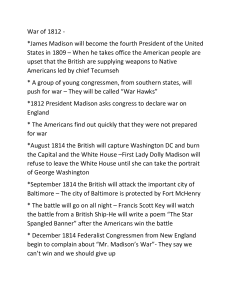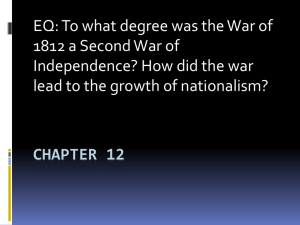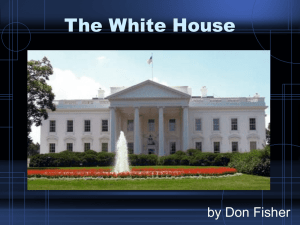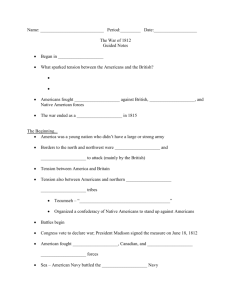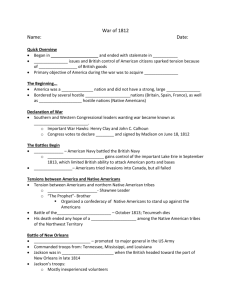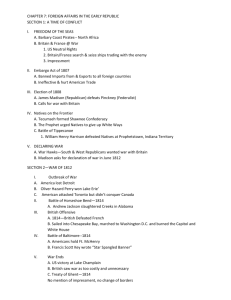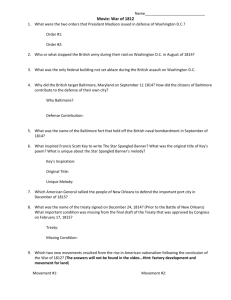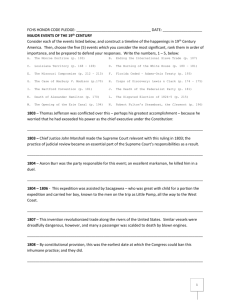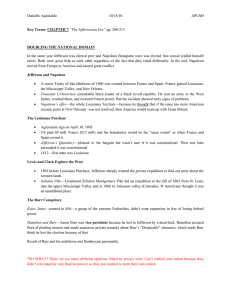new nationhood (1800-1815)
advertisement
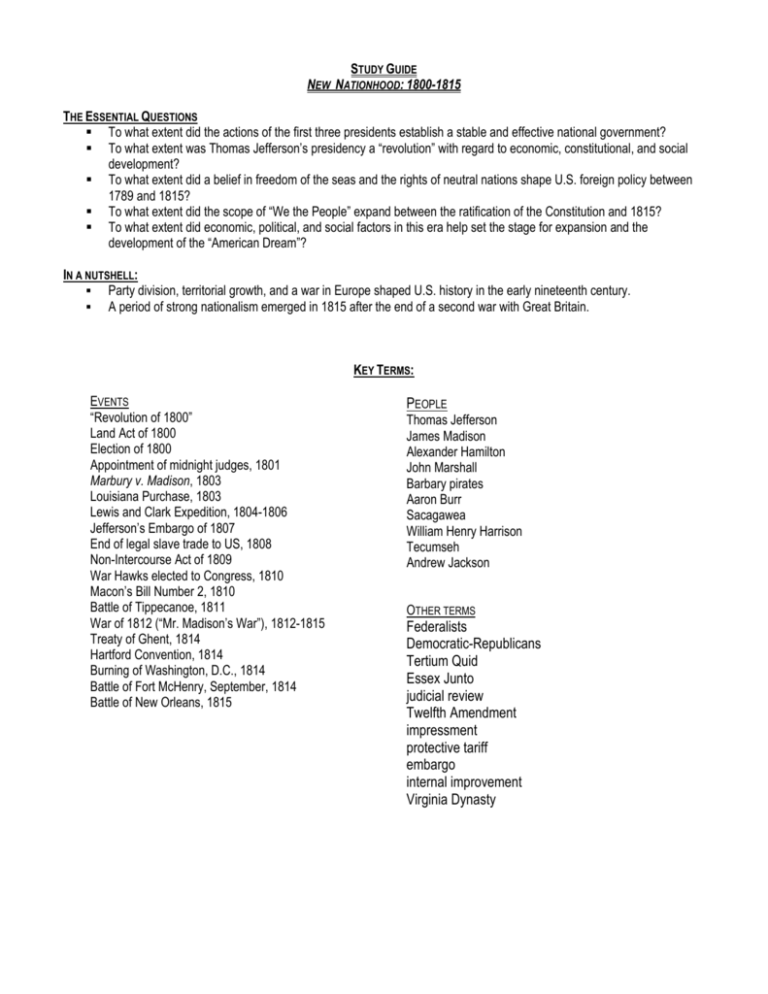
STUDY GUIDE NEW NATIONHOOD: 1800-1815 THE ESSENTIAL QUESTIONS To what extent did the actions of the first three presidents establish a stable and effective national government? To what extent was Thomas Jefferson’s presidency a “revolution” with regard to economic, constitutional, and social development? To what extent did a belief in freedom of the seas and the rights of neutral nations shape U.S. foreign policy between 1789 and 1815? To what extent did the scope of “We the People” expand between the ratification of the Constitution and 1815? To what extent did economic, political, and social factors in this era help set the stage for expansion and the development of the “American Dream”? IN A NUTSHELL: Party division, territorial growth, and a war in Europe shaped U.S. history in the early nineteenth century. A period of strong nationalism emerged in 1815 after the end of a second war with Great Britain. KEY TERMS: EVENTS “Revolution of 1800” Land Act of 1800 Election of 1800 Appointment of midnight judges, 1801 Marbury v. Madison, 1803 Louisiana Purchase, 1803 Lewis and Clark Expedition, 1804-1806 Jefferson’s Embargo of 1807 End of legal slave trade to US, 1808 Non-Intercourse Act of 1809 War Hawks elected to Congress, 1810 Macon’s Bill Number 2, 1810 Battle of Tippecanoe, 1811 War of 1812 (“Mr. Madison’s War”), 1812-1815 Treaty of Ghent, 1814 Hartford Convention, 1814 Burning of Washington, D.C., 1814 Battle of Fort McHenry, September, 1814 Battle of New Orleans, 1815 PEOPLE Thomas Jefferson James Madison Alexander Hamilton John Marshall Barbary pirates Aaron Burr Sacagawea William Henry Harrison Tecumseh Andrew Jackson OTHER TERMS Federalists Democratic-Republicans Tertium Quid Essex Junto judicial review Twelfth Amendment impressment protective tariff embargo internal improvement Virginia Dynasty
